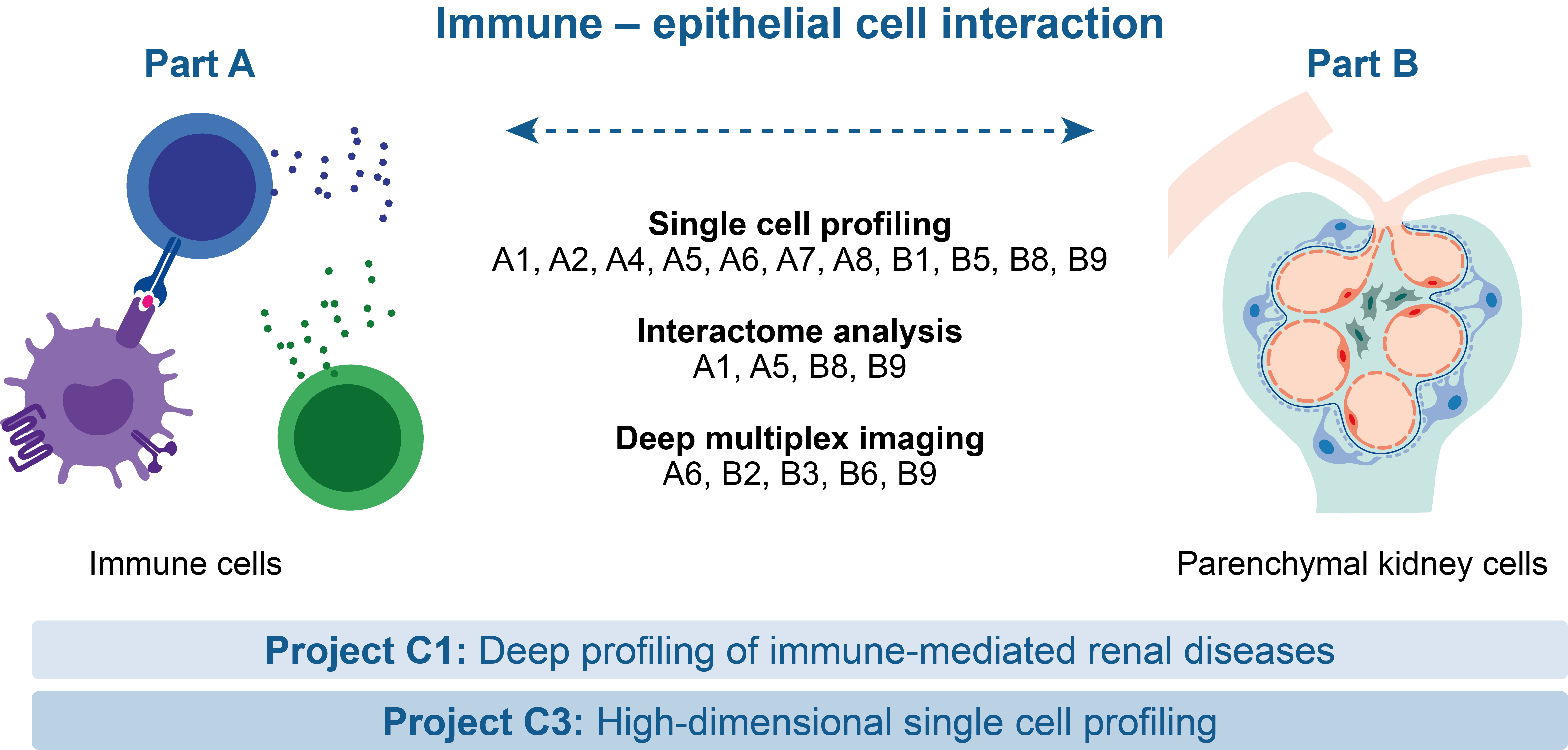SFB 1192
Projekt C
Central Projects
The Central Infrastructure Project C1 (Hamburg Glomerulonephritis Registry) established a unique cohort of patients with selected GN forms (> 500) during the first funding period and will be continued in the next period. The starting point for data collection is the renal biopsy, followed by regular clinical and laboratory assessments of the participating patients in a prospective longitudinal manner. All samples (renal biopsies, blood samples, urine samples) are stored in a tissue bank. C1 will be jointly coordinated by Dr. Hoxha, Dr. Wiech and Dr. T. Huber and provides a platform for the patient-based analyses that are instrumental for the translational concept of the CRC.
The Central Project 2 (Management and Coordination of the CRC) is the coordination and administration unit of the CRC and will be headed by Dr. Panzer and Dr. T. Huber. Its major goal is to facilitate and improve the quality of research conducted in the CRC 1192. Further important goals are career development of young investigators, promotion of women academics and scientists, structural development of the CRC, organization of all scientific meetings, public relations, and strengthening of structures supporting research on immune-mediated kidney diseases within the UKE.
The new Central Project 3 (High-dimensional single cell profiling in immune-mediated glomerular diseases) is a service project which offers single cell analyses from sample material of GN patients and experimental GN models (“from sample preparation to data analysis”). The PIs of C3 (Dr. Krebs, Dr. Panzer, and Dr. Bonn) recently established a pipeline to perform combined flow cytometry and RNA sequencing at the single cell level in patients with glomerulonephritis. This technical platform will provide all CRC 1192 research groups with the expertise to enable state-of-the-art single cell technologies and data analysis focused on the specific questions. We are convinced that the rapid development of single cell technology complemented with advanced bioinformatics will be of great importance to develop the CRC in the future.



